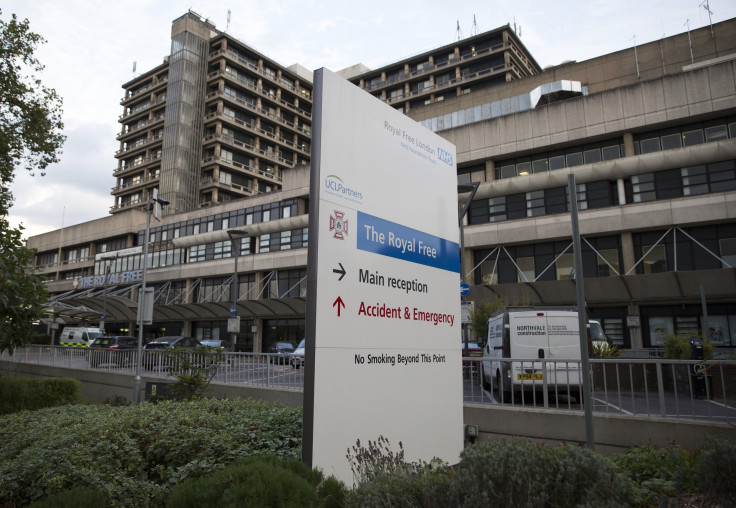British Ebola Patient Being Treated At Royal Free Hospital

A British nurse who contracted the Ebola virus while treating patients in Sierra Leone was flown to a London hospital Sunday night to receive care. The 29-year-old, known now only as William, is the first person with the virus to be taken to the United Kingdom. He was flown home on a Royal Air Force (RAF) aircraft and transported to Royal Free Hospital, a top teaching hospital affiliated with the University College London.
William is reportedly “not currently seriously unwell,” according to the Department of Health. William had worked for five months in a Sierra Leone hospital where 15 nurses had already died. Friends say he was extremely enthusiastic about his work, despite knowing the risks of treating Ebola patients. Ebola is spread through direct contact with an infected person's bodily fluids. He had been in Sierra Leone since outbreak was first declared in West Africa six months ago.
He will be treated in Royal Free Hospital’s state-of-the-art isolation room, much like the Atlanta facility where two American aid workers, Nancy Writebol and Dr. Kent Brantly, received treatment. It’s the only one of its kind in Britain. He is reportedly confident he will overcome the viral disease.
British #Ebola patient to be treated in special isolation unit at London's Royal Free Hospital http://t.co/Kb9T60gRJe pic.twitter.com/kBwTPoaZDE
— BBC Breaking News (@BBCBreaking) August 24, 2014William will not receive the experimental ZMapp serum that’s presumed to have helped Writebol and Brantly, who survived the disease and were released from an Atlanta hospital on Thursday. Mapp Biopharmeceuticals, which produces the serum, says its small stores of the drug are “completely exhausted” after being given to Writebol, Brantly, three Liberian doctors (one of whom has now died) and a Spanish priest.
At least 1,427 people have died in the worst Ebola outbreak in history, according to the World Health Organization. The Democratic Republic of Congo has confirmed two cases of the disease, but it is unclear whether they are directly related to the outbreak in West Africa. The disease was first discovered in the DRC in 1976, but the West African outbreak has so far been contained to Sierra Leone, Liberia, Guinea and a handful of cases in Nigeria.
© Copyright IBTimes 2024. All rights reserved.












